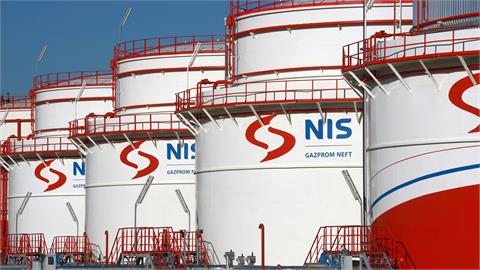Here is a story of a Serbian oilman who was born in a tiny town, yet he got admitted to St. Petersburg Mining University. Now he is back home, working for one of the most profitable Serbian companies.
"I have been working at the Department of Geotechnical Projects at NIS for about a year and, finally, my job duties fully correspond to the speciality I obtained at the University. But when I joined the company, during the first 9 months, I was working as an operator of oil production facilities.
In Serbia, the same as in Russia, it is customary to assign young specialists to entry-level jobs. Then they gradually move up the career ladder, depending on their abilities. Even the most talented graduate will not be offered a senior position straight away,” says Nemanja Aleksić, now employed at NIS.
The Mining University’s graduate was born and raised in Kraljevo, a city in Serbia with a population of fewer than 100,000 inhabitants. He was in his last year, studying at a local gymnasium when a physics teacher suggested him to take chances on a pilot educational project launched by NIS. Back then, the Serbian company was picking out several talented high school students who would then be offered sponsored education in Russian universities.
The aim of the company here is to train future employees by preparing them for particular business needs. This is a common practice among large companies: applicants enroll in universities out of primary competition, within the number of study places allocated to the ordering party. Once they complete education, they are bound to return to the place where they previously resided. Neither a company nor applicant have to pay for education in this case. Instead, studies are financed by the Federal budget. If the student is of foreign origins, then quotas are usually deducted from those allocated by Rossotrudnichestvo for that country.
There was no national competition in 2013, and barely anyone knew about the contest. Nemanja’s teacher was a member of the Society of Physicists, with which NIS was collaborating on research. Information on the competition was distributed among the Society’s members, and thus Nemanja found out about this opportunity. The boy arrived at the headquarters of NIS. There he took mandatory tests and, lucky for him, successfully passed them all. Altogether 12 applicants were competing for study places that year, with five of them being selected.
"We were the programme’s pioneers. Next year, the number of applicants exceeded 100 people. Of two universities the company chose for sending their future employees to, one was Saint Petersburg Mining University. And so I found myself at the Faculty of Oil & Gas Engineering – one of the most popular ones. When studying at school, I wanted to go into the military or become an IT specialist. However, I was forced to change my plans on seeing the new perspectives.
Of course, I do not regret that decision – studying abroad and then working for the multinational oil and gas company, one of the largest domestic exporters. What else could I want? I got a speciality that can guarantee me a well-paid job – whether it be in Serbia or somewhere else,” explains Nemanja.
As he recalls, the first study year was relatively easy, which can be explained by the specificity of the Serbian educational system. School or university exams usually consist of both written and oral parts. It helps youngsters to better formulate their thoughts and ideas, as well as present their own projects in front of teachers and classmates.
School education is divided into two parts: 8 years of primary school and 4-year-long secondary school. Upon completion of the first part, primary school students are required to take the general exam. Based on its results, students are assigned to particular classes with a focus on, for example, physics and math, liberal arts, natural sciences, or some other disciplines.
When high school is over, graduates do not take any tests or exams. Therefore high school education is not aimed at preparing for them. After earning their school certificates, prospective students choose a university first and then take entrance examinations.
According to Nemanja, "School education in Serbia is of high quality. Still, unfortunately, we lag behind Russia in terms of higher education. Russian mining & engineering school have an apparent advantage: accumulated experience in science and education. Russian-speaking students can learn from this experience by reading respective textbooks, scientific journals, or encyclopaedias. Such amount of knowledge is not available in Serbia, even in the University of Belgrade. My country’s raw materials base is incomparable to the Russian one. Hence industry experience is not on a par with Russia’s either.
St. Petersburg Mining University’s students get to learn about advanced technologies that are currently used by world-leading oil corporations. It means that by the time you start seeking a job, you already have a solid foundation. You are as well aware of the industry-specific terms, familiar with the economic backdrop and news on innovation performance. That is why NIS made a decision to send us to study at Mining University.”
Under the terms of the agreement, the Serbian graduate, who returned to Serbia upon graduating, must keep working at NIS for 5 years. Once this period is over, he intends to either move to Russia or some other country with highly dynamic petroleum sector and leading mineral companies in place.
"Whereas there is only one oil and gas company in Serbia, there are many in Russia. I suppose this is one of the reasons why young professionals are initially prepared for a high level of competition and the need to constantly improve their competencies. They are actively mastering new technologies and promoting their adoption. Serbian universities’ graduates, for comparison, rarely strive to learn more,” admits Nemanja Aleksić.
(qswownews.com, September 24, 2020)



